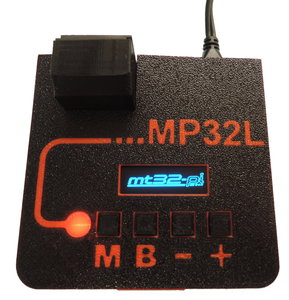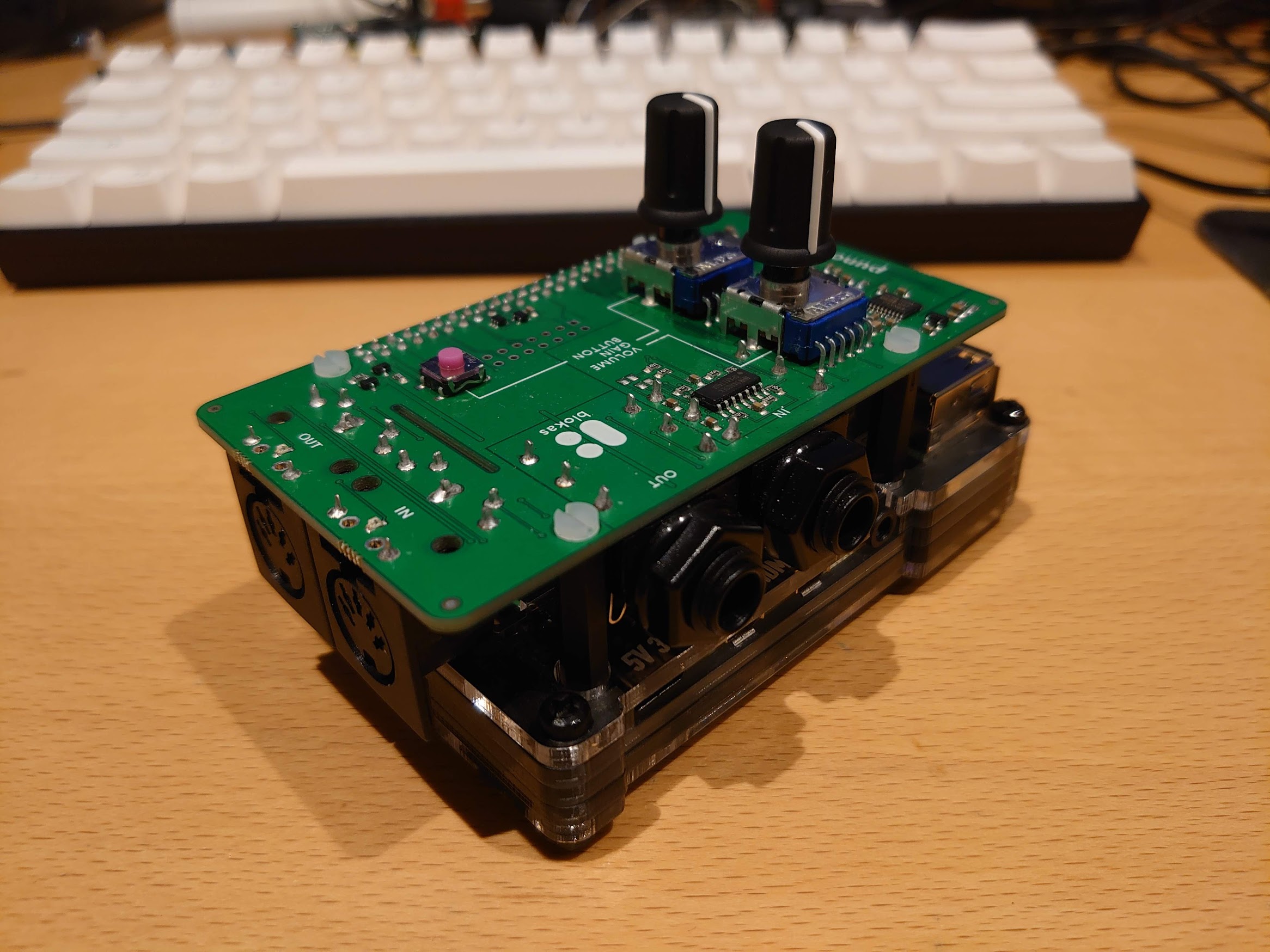-
-
Notifications
You must be signed in to change notification settings - Fork 80
Custom hardware
The community has been designing some excellent custom hardware for use with mt32-pi. If you have created something cool that works with mt32-pi, please feel free to edit this page and add it!
⚠️ Note: If you are designing custom hardware for mt32-pi, and want to add features that are not documented here, open an issue so we can work together on supporting it.
BulkyMIDI-32 is a free and open source set of PCB, starting out as a reworking of clumsyMIDI in order to resemble a standalone audio device. The boards were designed to be easy to assemble, using only through-hole components and do not require a 3d-printer. An optional expansion-module adds a passive audio mixer, RS232 level and baud rate translation as well adding extra OUT and THRU ports.
clumsyMIDI is a free and open source PCB by @gmcn42 aimed at DIYers, which features an OLED display, MIDI input, MIDI output (or thru), and space for an inexpensive DAC module with stereo 3.5mm output. The board is designed to be easy to assemble, using only through-hole components so that even the "clumsiest" electronics enthusiasts can build their own interface for mt32-pi!
The Minisynth 32 is a complete standalone MIDI synth unit consisting of a 3D-printable shell at 50% scale of the outer dimensions of the MT-32, and completely-through-hole PCBs inspired by clumsyMIDI for the rear and front panels. Input is via a MIDI DIN jack or optional USB MIDI controller board.
The mt32-pi-midi-hat is a free and open source PCB by @chris-jh aimed at DIYers, which features a MIDI input, space for a 128x32 or 128x64 OLED display, and space for one of two different inexpensive DAC modules with stereo 3.5mm output. This board is also designed to be easy to assemble, using only through-hole components.
The MP32L from Serdaco is a device which provides an OLED display, MIDI input, four control buttons, and a DAC with stereo 3.5mm audio output. It is available a HAT PCB only (either preassembled or for DIY soldering) or optionally as a full kit complete with Raspberry Pi and custom 3D printed case.
The PI-MIDI by Arananet is a pre-assembled device which provides an OLED display, MIDI input, and a DAC with stereo RCA outputs. The newest versions also feature a useful input jack with volume control for mixing-in stereo audio from a host computer, control buttons, rotary encoder, and a port for using the MiSTer FPGA user port connection.
The Pisound by Blokas is a commercial Raspberry Pi sound card with DAC, ADC (recording device) and MIDI interface, and is the closest product available to a "professional" audio device. Currently, only the MIDI input and audio output is supported by mt32-pi.
The WP32 McCake from Serdaco is a Creative Wave Blaster-compatible card based around the Raspberry Pi Compute Module 4. By attaching it to the Wave Blaster header of a classic ISA PC sound card (such as the Sound Blaster 16), you can expand the MIDI capabilities of the sound card and install mt32-pi neatly inside your computer. It features a PCM5102A DAC chip for high-quality audio, which is mixed into the audio output of your sound card.
The card can be used in a "headless" fashion, but it also features pin headers for I²C displays, buttons, and a rotary encoder so that you can build an optional control surface (e.g. a PC drive bay). It can also be combined with a Wave Blaster to MIDI interface such as the CHiLL III to create a standalone desktop MIDI synthesizer.
Follow the VOGONS thread for further information.









